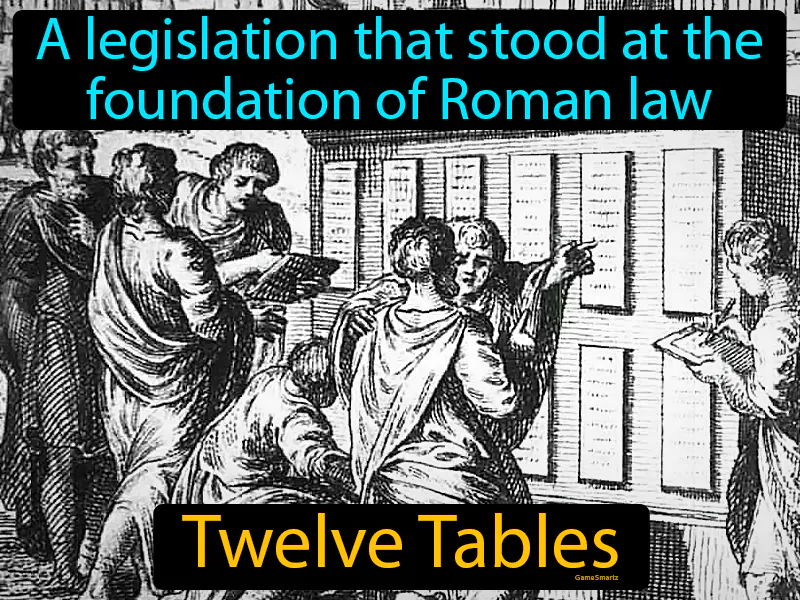Twelve Tables

The Twelve Tables were a set of laws created in ancient Rome around 450 BC, forming the foundation of Roman law. They were important because they provided a written code that applied to all Roman citizens, ensuring fairness and reducing the power of the elite to interpret laws for their own benefit. The Twelve Tables represented justice and equality to the Romans, as they allowed everyone to know their rights and the laws that governed them. Today, the concept of having a written legal code is still significant, as seen in modern constitutions, which ensure that laws are clear and accessible to everyone. For instance, the U.S. Constitution serves a similar purpose by protecting citizens' rights and maintaining justice in society.
Practice Version

Twelve Tables: A legislation that stood at the foundation of Roman law. Twelve Tables. The Twelve Tables were the first set of laws written down in ancient Rome, providing the foundation for Roman legal practice and ensuring citizens had a clear and public legal code.